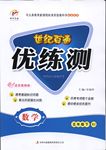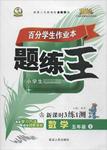题目内容
Good writing starts with good ideas. If you write about things that you care about, you will write better. If you write about things that you don’t care about, you’ll be bored and your paper will not have many good ideas.
Once you have a good idea, the next step is organization. Think through your paper before you start. Write an outline. You need to know what your main points are before you start your first paragraph (段落). Use 2-4 main points, one paragraph each.
In your central paragraphs, be concise (简短的) and specific (具体的). Give examples with details(细节), not just general ideas. If you can say the same thing with fewer words, do it! Don’t use big words.
When you finish writing, look at  your
outline again. Did you really follow it or did it change as you wrote? Many times
you find different ideas as you write. Look at your central paragraphs. What
are their main ideas now? Are these ideas in the introduction? I often write
the introduction again to fit the paper after I finish writing.
your
outline again. Did you really follow it or did it change as you wrote? Many times
you find different ideas as you write. Look at your central paragraphs. What
are their main ideas now? Are these ideas in the introduction? I often write
the introduction again to fit the paper after I finish writing.
1. What is the 1st step for a good writing?
A. Think through your paper before you start.
B. Write a good 1st paragraph.
C. Have a good idea.
D. Look for many examples.
2. What is the 2nd step?
A. Have a good idea. B. Write an outline.
C. Write the 1st paragraph. D. Give examples with details.
3. What does the word “outline” mean in the 2nd paragraph?
A. 提纲 B. 外形 C. 中心 D. 总结
4. What should you do in the central paragraph?
A. Don’t use big words.
B. Give examples with details.
C. Say the same thing with fewer words.
D. A, B and C.
5.What should you do after finishing writing?
A. Look at your outline again.
B. Check the mistakes.
C. Look at your central paragraph again.
D. Both A and C.
1.C
2.B
3.A
4.D
5.D
【解析】
试题解析:本文大意:好的写作始于好的想法,一旦有了好的想法,第二步是组织,在你开始第一段之前,你需要了解你的主要观点是什么, 每段用2-4个观点,在主要段落中,要简短、具体,用细节举例,不要只是概况的想法,如果你用更少的词说同样的事,那么就这样做吧!不要使用大的词语,当你结束写作时,再次看一下你的提纲。
1.细节理解题。根据Good writing starts with good ideas. 好的写作始于好的想法,可知答案选C
2.细节理解题。根据 Once you have a good idea, the next step is organization. 一旦有了好的想法,第二步是组织,可知答案选B。
3.推理判断题。根据 You need to know what your main points are before you start your first paragraph (段落). Use 2-4 main points, one paragraph each. 在你开始第一段之前,你需要了解你的主要观点是什么, 每段用2-4个观点,可知答案选A。
4.细节理解题。根据In your central paragraphs, be concise (简短的) and specific (具体的). Give examples with details(细节), not just general ideas. If you can say the same thing with fewer words, do it! Don’t use big words. 在主要段落中,要简短、具体,用细节举例,不要只是概况的想法,如果你用更少的词说同样的事,那么就这样做吧!不要使用大的词语,可知答案选D。
5.细节理解题。根据When you finish
writing, look at  your
outline again. 当你结束写作时,再次看一下你的提纲,可知答案选D。
your
outline again. 当你结束写作时,再次看一下你的提纲,可知答案选D。
考点:教育类短文阅读。

 世纪百通优练测系列答案
世纪百通优练测系列答案 百分学生作业本题练王系列答案
百分学生作业本题练王系列答案Good writing starts with good ideas. If you write about things that you care about, you will write better. If you write about things that you don’t care about, you’ll be bored and your paper will not have many good ideas.
Once you have a good idea, the next step is organization (组织). Think through your paper before you start. Write an outline. You need to know what your main points are before you start your first paragraph. Use 2-4 main points, one paragraph each.
In your central paragraphs, be concise and specific(简洁具体). Give examples with details, not just general ideas. If you can say the same thing with fewer words, do it! Don’t use big words.
When you finish writing, look at your outline again. Did you really follow it or did it change as you wrote? Many times you find different ideas as you write. Look at your central paragraphs. What are their main ideas now? Are theses ideas in the introduction? I often write the introduction again to fit the paper after I finish writing.
【小题1】What is the 1st step for a good writing?
| A.Think through your paper before you start. |
| B.Write a good 1st paragraph. |
| C.Have a good idea. |
| D.Look for many examples. |
| A.外形 | B.提纲 | C.中心 | D.总结 |
A. Don’t use big words.
B. Give examples with details.
C. Say the same thing with fewer words.
D. A, Band C.
【小题4】What should you do after finishing writing?
A. Look at your outline again.
B. Check the mistakes.
C. Look at your central paragraph again.
D. Both A and C.
You have probably heard it before, most likely from your English teacher. If you want to become a good writer, read good writing. Unluckily, you may not have understood what did good to you and even what you were supposed to get from that experience.
As you start reading a book, poem, or story, do so with no thought at all and the experience will improve your writing. you may not have understood what did good to you and even what you were supposed to get from that experience.
or to learn. As you progress through the work, think about whether it is “easy” reading or not. Do you become so interested in the subject and flow of the writing that you completely forget the person who wrote it, or does the composition sometimes call too much attention to itself through words and phrases that seem out of place or unexpected? The second situation is a chance to learn from the writer’s mistakes. In fact, the reader should not have to worry about how a writer does “his thing” ... he should be able to just enjoy and learn. Every time a word strikes you as poorly chosen, stop to consider why it has this effect. Also, do not spend a lot of time analyzing (分析) the passage but put more efforts in enjoying it from the whole.
Another thing I do, particularly with nonfiction (非小说) books, is to select a part to read as if it is a completely separate work. Once again, read as a common reader rather than a critic (批评家). For learning how words and phrases work together on the most basic level, however, nothing is more suitable than devoting yourself to reading poems. A poet is often trying to put a book’s worth of meaning and feelings into lines, and every side of the work shows a very close attention to craft (工艺).
As you can see, there is no simple way of reading to improve your writing. The key is not to make it boring. Select writers you admire or like most, and enjoy their works as anyone else would. As long as you are reading, you are improving yourself as a writer.
| Improving Your Writing by Reading | |
| Facts | Reading good writing 【小题1】 you become a good writer. You don’t understand the 【小题2】 of reading and what to get from reading. |
| Ways | Read not to learn but for 【小题3】 . 1) Develop a great 【小题4】 in the subject and flow of the writing. 2) Learn from the writer’s 【小题5】 if possible. 3) 【小题6】 shouldn’t be spent in analyzing the passage but in enjoying the passage from the whole. |
| Read as a common consumer rather than a critic. 【小题7】 yourself to reading poems and enjoy the lines. | |
| Conclusions | Don’t make yourself 【小题8】 with reading. Select your 【小题9】 writers and enjoy their works. You are sure to make 【小题10】 during reading. |
You have probably heard it before, most likely from your English teacher. If you want to become a good writer, read good writing. Unluckily, you may not have understood what did good to you and even what you were supposed to get from that experience.
As you start reading a book, poem, or story, do so with no thought at all and the experience will improve your writing. Just read for pleasure to begin with, or to learn. As you progress through the work, think about whether it is “easy” reading or not. Do you become so interested in the subject and flow of the writing that you completely forget the person who wrote it, or does the composition sometimes call too much attention to itself through words and phrases that seem out of place or unexpected? The second situation is a chance to learn from the writer’s mistakes. In fact, the reader should not have to worry about how a writer does “his thing” ... he should be able to just enjoy and learn. Every time a word strikes you as poorly chosen, stop to consider why it has this effect. Also, do not spend a lot of time analyzing (分析) the passage but put more efforts in enjoying it from the whole.
Another thing I do, particularly with nonfiction (非小说) books, is to select a part to read as if it is a completely separate work. Once again, read as a common reader rather than a critic (批评家). For learning how words and phrases work together on the most basic level, however, nothing is more suitable than devoting yourself to reading poems. A poet is often trying to put a book’s worth of meaning and feelings into lines, and every side of the work shows a very close attention to craft (工艺).
As you can see, there is no simple way of reading to improve your writing. The key is not to make it boring. Select writers you admire or like most, and enjoy their works as anyone else would. As long as you are reading, you are improving yourself as a writer.
|
Improving Your Writing by Reading |
|
|
Facts |
Ø Reading good writing 1. you become a good writer. Ø You don’t understand the 2. of reading and what to get from reading. |
|
Ways |
Ø Read not to learn but for 3. . 1) Develop a great 4. in the subject and flow of the writing. 2) Learn from the writer’s 5. if possible. 3) 6. shouldn’t be spent in analyzing the passage but in enjoying the passage from the whole. |
|
Ø Read as a common consumer rather than a critic. Ø 7. yourself to reading poems and enjoy the lines. |
|
|
Conclusions |
Ø Don’t make yourself 8. with reading. Ø Select your 9. writers and enjoy their works. Ø You are sure to make 10. during reading. |